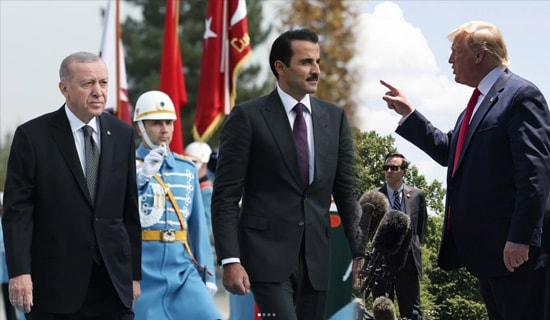
The "Justice and Accountability Commission" Disqualifies 511 Parliamentary Candidates
In mid-January, a largely unknown body called the Justice and Accountability Commission (Hayat Al-Masaa Wal-'Adala, or the de-Ba'thification Commission in its earlier incarnation), issued an order disqualifying 511 candidates from participating in the Iraqi general election, slated for March 7, 2010, on grounds of membership in, or sympathy to, the dissolved Ba'th Party which ruled Iraq for 35 years. The commission's chairman is Dr. Ahmed Chalabi and its executive director is 'Ali Al-Lami, both of whom are themselves running for parliament on behalf of the Shi'a bloc, the Iraqi National Coalition (Al-Itilaf Al-'Iraqi Al-Watani). The disqualification order raised questions as to whether it was politically motivated, i.e., meant to exclude from parliament a number of key political figures, particularly Sunni politicians who are perceived as a threat to the Shi'a dominance in the political process. Critics also claimed that Iran was behind the exclusion order, since Chalabi is considered to be one of Iran's closest allies in Iraq.
Parliament Appoints an Appeals Panel
Under pressure from various forces – including the U.S. government (in particular Vice President Joe Biden), the United Nations Mission to Iraq (UNAMI), Iraqi President Jalal Talabani, Iraq's Sunni vice president Tareq Al-Hashemi (who is currently in Washington), Parliament Speaker Ayad Al-Samarra'i, and many Sunni politicians – the parliament endorsed the appointment of an Appeals Panel to review the disqualification order, comprising seven judges selected by the Supreme Judicial Council. On February 3, the Panel invalidated the disqualification order, and decreed that the issue will be resolved after the elections. That is, the elected MPs will be reviewed, and if any of them is proved to be affiliated with the Ba'th Party, he or she will be barred from taking their seat. As a matter of fact, there is a precedent for such a procedure. Following the 2005 elections, five elected MPs were disqualified for reasons of Ba'thist affiliation.[1]
The Panel's decision did not go down well with the ruling Shi'a political parties, primarily with the Islamic Supreme Council of Iraq, the Sadrists and Al-Maliki's Al-Da'wa Party. These parties argued (the Sadrists with a lot of pathos) that the decision is tantamount to giving the Ba'th Party a chance to resurrect itself and play a critical role in the government. They even hinted that the return of the Ba'th Party might trigger a coup. The heads of the Accountability and Justice Commission, Chalabi and Al-Lami, argued that the Panel had no authority to make this decision and that the Elections Commission, which oversees the elections process and issues the list of candidates, should ignore it.[2]
Constitutional Court Called Upon to Decide the Issue
Caught between the Accountability and Justice Commission and the Appeals Panel, the Elections Commission has called on the Constitutional Court, Iraq's highest judicial authority, to render its judgment on the issue. In the meantime, Prime Minister Al-Maliki has called an emergency session of parliament on Sunday (February 7) to discuss the issue.[3]
With the political turmoil in full swing, the Elections Commission has postponed the official start of the elections campaign to February 12, leaving the candidates less than a month to campaign. Meanwhile, the list of candidates which the Accountability and Justice Commission wishes to disqualify has grown from 511 individuals to 527.[4]
Where does the process go from here? If the Constitutional Court supports the Appeals Panel, the 527 will be allowed to participate in the elections, and their eligibility will be judged only after the elections, should any of them win a seat. On the other hand, if the court rejects the appeal, there is a real possibility that most of the Sunni Iraqis will boycott the elections, which could jeopardize the intensive efforts of national reconciliations that have been ongoing for many years. The biggest winner, in that case, will be Iran.
* Dr. N. Raphaeli is a senior analyst at MEMRI.
Endnotes:
[1] Al-Zaman (Iraq), February 3, 2010.
[2] Press release issued by the Iraqi National Congress in Baghdad, February 3, 2010.
[3] www.alsumaria.tv/ar/print-news-1-44335.html, February 4, 2010.
[4] http://al-iraqnews.net/new/ajeel/53464.html, February 4, 2010.




